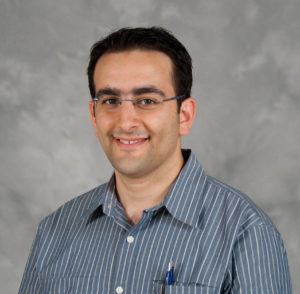ABSTRACT
HCV prevalence in prison systems is ten times higher than the general population, and hence prison systems offer a unique opportunity to control the HCV epidemic. New HCV treatment drugs are very effective, but providing treatment to all inmates is prohibitively expensive, which precludes universal HCV treatment in prison systems. As such, current practice recommends prioritizing treatment based on clinical and incarceration-related factors, including disease staging, remaining sentence length, and injection drug use (IDU) status. However, there is controversy about how these factors should be incorporated because of the complicated tradeoffs. In this study, we propose an analytics approach to support hepatitis C treatment prioritization decisions in U.S. prisons.
BIO

Turgay Ayer is the George Family Foundation Early Career professor and an associate professor at Industrial and Systems Engineering, and is the research director for healthcare analytics and business intelligence in the Center for Health & Humanitarian Systems at Georgia Tech. In addition, Dr. Ayer holds a courtesy appointment at Emory Medical School.
His research focuses on healthcare analytics, with applications in predictive and prescriptive health, health policy analysis, and medical decision making. His research papers have been published in top tier management, engineering and medical journals, and covered by popular media outlets, including the Wall Street Journal, Washington Post, US News, and NPR.
Dr. Ayer has received over $2 million grant funding and several awards for his work, including an NSF CAREER Award (2015), Society for Medical Decision Making (SMDM) Lee Lusted Award (2009), first place in the MSOM Best Practice-Based Research Competition (2017), and a finalist in the 2017 INFORMS Franz Edelman Competition (2017).
Dr. Ayer serves as associate editor for Operations Research, and is a past president of the INFORMS Health Application Society. He received a B.S. in industrial engineering from Sabanci University in Istanbul, Turkey, and his M.S. and Ph.D. degrees in industrial and Systems Engineering from the University of Wisconsin – Madison.



